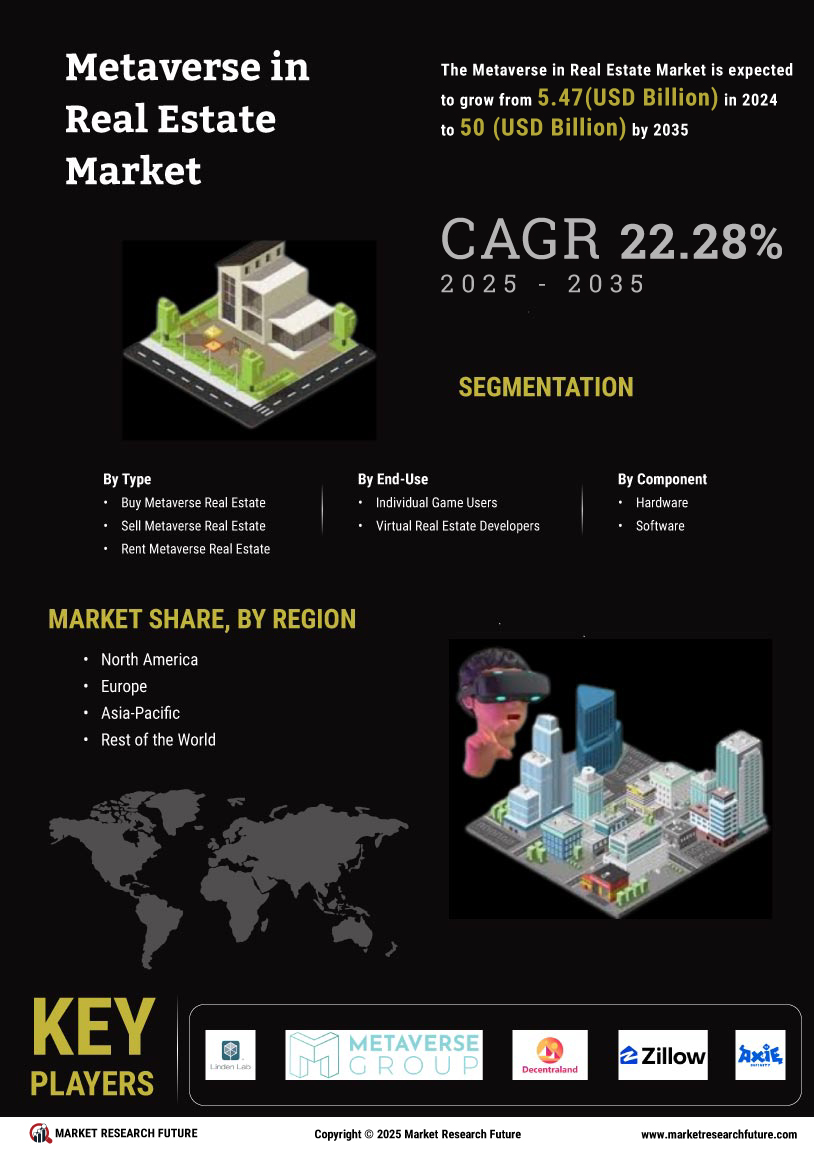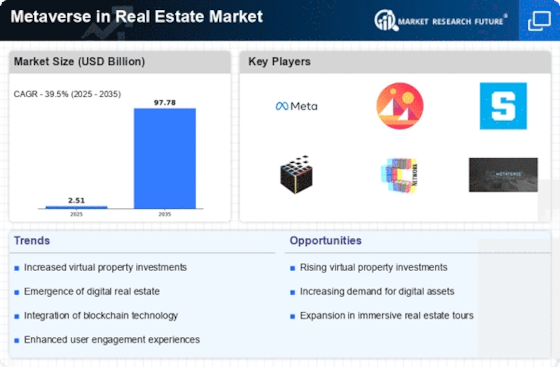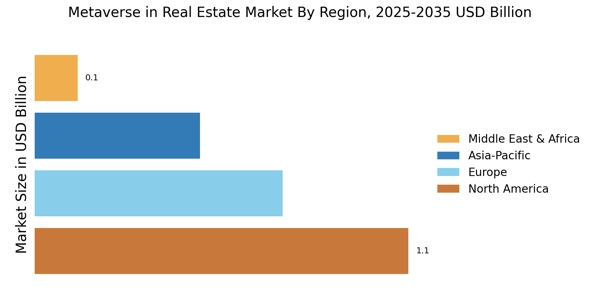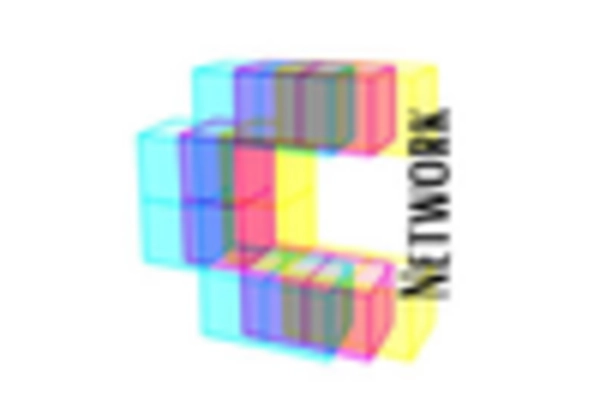Rise of Digital Ownership and NFTs
The emergence of digital ownership through non-fungible tokens (NFTs) is transforming the Metaverse in Real Estate Market. NFTs provide a unique way to represent ownership of virtual properties, allowing for secure and verifiable transactions. As of October 2025, the NFT market has seen substantial growth, with sales reaching over 10 billion USD in the real estate sector alone. This trend indicates a shift in how properties are bought and sold, as digital assets gain legitimacy and acceptance among investors. The ability to buy, sell, and trade virtual real estate as NFTs opens new avenues for investment and diversification. Furthermore, this digital ownership model may attract a younger demographic, who are more inclined to engage with digital assets, thus expanding the market reach of the Metaverse in Real Estate Market.
Increased Demand for Remote Workspaces
The shift towards remote work has led to an increased demand for virtual workspaces within the Metaverse in Real Estate Market. As companies adapt to flexible work arrangements, the need for virtual offices and collaborative spaces has become apparent. By October 2025, it is estimated that 30% of businesses will have adopted some form of virtual workspace, creating a new segment within the real estate market. This trend not only reflects changing work habits but also highlights the potential for real estate developers to create innovative virtual environments that cater to remote teams. The ability to design and customize virtual offices can enhance productivity and employee satisfaction, making this a compelling opportunity for stakeholders in the Metaverse in Real Estate Market.
Technological Advancements in Virtual Reality
The Metaverse in Real Estate Market is experiencing a surge in technological advancements, particularly in virtual reality (VR) and augmented reality (AR). These technologies enable potential buyers to engage in immersive property tours from the comfort of their homes. As of October 2025, the VR market is projected to reach a valuation of approximately 57 billion USD, indicating a robust growth trajectory. This integration of VR into real estate transactions not only enhances user experience but also streamlines the buying process, making it more efficient. Consequently, real estate developers and agents are increasingly adopting these technologies to attract tech-savvy clients, thereby reshaping traditional real estate practices. The ability to visualize properties in a virtual environment is likely to become a standard expectation among consumers, further driving the Metaverse in Real Estate Market.
Investment Opportunities in Virtual Real Estate
The Metaverse in Real Estate Market is witnessing a growing interest in virtual real estate as a viable investment opportunity. Investors are increasingly recognizing the potential for high returns in the digital property market, with some virtual land parcels appreciating significantly in value. As of October 2025, reports suggest that certain virtual properties have seen price increases of over 300% within a year. This trend indicates a burgeoning market where investors can diversify their portfolios by including digital assets. The allure of virtual real estate lies in its accessibility and the potential for passive income through leasing or developing virtual spaces. As more investors enter this space, the Metaverse in Real Estate Market is likely to evolve, presenting new challenges and opportunities for traditional real estate practices.
Integration of Social Experiences in Virtual Environments
The integration of social experiences within virtual environments is reshaping the Metaverse in Real Estate Market. As users seek more interactive and engaging experiences, real estate developers are focusing on creating community-oriented virtual spaces. By October 2025, it is anticipated that virtual communities will become a significant aspect of real estate offerings, with features that promote social interaction and collaboration. This trend reflects a broader societal shift towards valuing community and connection, even in digital realms. The ability to host events, collaborate on projects, and engage with others in virtual settings enhances the appeal of virtual properties. Consequently, this focus on social experiences is likely to drive demand for innovative virtual real estate solutions, further propelling the growth of the Metaverse in Real Estate Market.


















